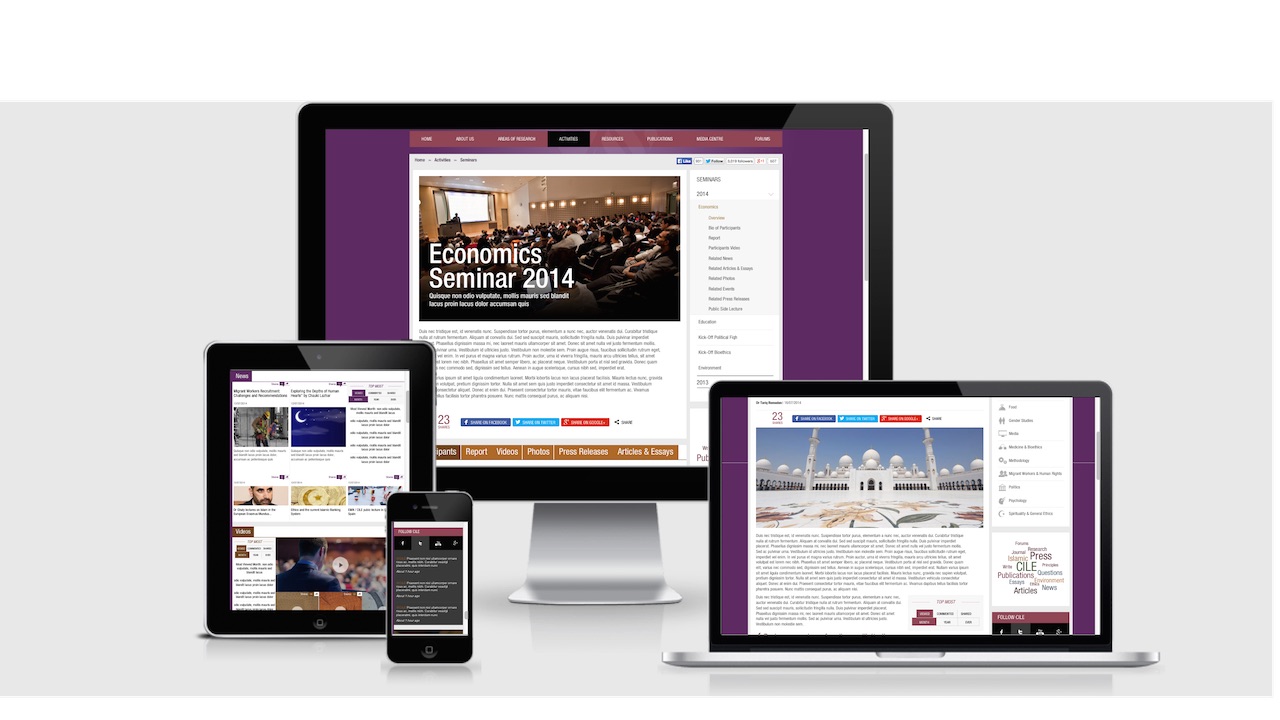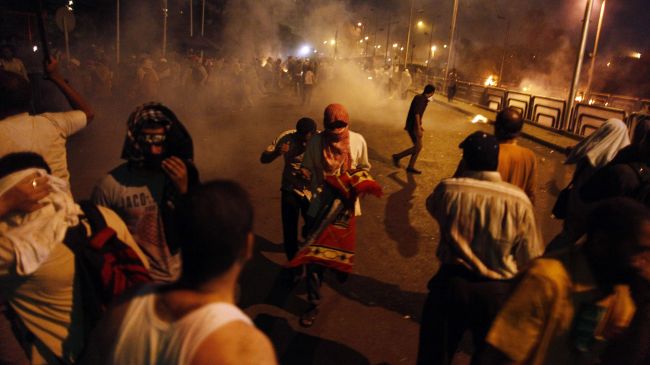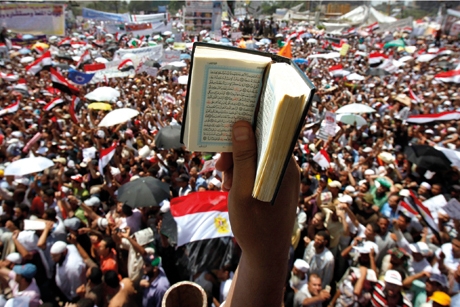Looking for a translator from English to French (S.H. ready?). Thanks for your help
********************************************************************The visit of Turkish Prime Minister Recep Tayyip Erdoğan to the Middle East and North Africa (MENA) has been an immense popular success. Over the last three years his image has changed tremendously. His popularity and respect have increased for many different reasons: he has been elected and reelected and even his opponents – despite their criticisms – have acknowledged his competence and the effectiveness of his government; Turkey is improving both at home and abroad: less corruption, better management, less conflict and a strong economy (17th in the world today). After having tried hard to integrate into the European Union (EU)—and after facing ongoing European reluctance—the Prime Minister wasted little time in launching a multidimensional foreign policy directed towards the South (Africa, Latin America) and the East (China, India, Malaysia, etc.). The “zero-conflict” strategy promoted by Foreign Minister Ahmet Davutoğlu has had a visible and positive impact. On the domestic front, the new role assigned to the army has helped the current government strengthen Turkish democracy.
But it is not for these good reasons that Prime Minister Erdoğan’s image has changed in the MENA. On January 29, 2009 in Davos, he stood up and left the room while debating with Israeli President Shimon Perez. Erdoğan was reacting to the massacre in Gaza and expressing his opposition and revulsion. The great majority of Arab governments had been silent; Mr. Erdoğan was perhaps the first and the only major political personality to translate the feelings of Arabs and Muslims into a symbolic and media act: the Israeli policy that killed innocent civilians was appalling and he dared to say it politely but powerfully. This was a turning point: the Turkish Prime Minister signaled that he was a truly independent leader listening to both the Turkish and the Arab streets (even though Turkey’s extensive economic and diplomatic relations with Israel are an open secret).
One and a half years later, when the Israeli commandos attacked the Freedom Flotilla in international waters and killed nine Turkish peace activists, Mr. Erdoğan was once again quick to react: he asked for an official apology and has held the same position up to the present. Turkey then expelled the Israeli ambassador (and lower-rank diplomats) and suspended its substantial military ties with Israel, demonstrating that this was no longer a conflict of symbols but that he was ready for a diplomatic showdown. Arabs and Muslims looked on with amazement and admiration. Finally, in Cairo, he reminded his hosts that recognition of a Palestinian State at the United Nations General Assembly in September, “is an obligation not an option,” adding to his symbolic and psychological power. Not only is Mr. Erdoğan a successful Prime Minister leading his country towards political transparency and economic autonomy, he is also the champion of the international Palestinian cause. He warns: “Israel cannot do whatever it wants in the Mediterranean Sea” as Turkey’s navy “will step up its surveillance” in the area. The message could not be more explicit.
His visits to Egypt and in Tunisia must be seen against this overwhelmingly positive background and dramatically increased stature. We must also add that the Turkish Prime Minister was one of the first to pay tribute to the people who demonstrated again the dictators. Early on he called upon Ben Ali and Mubarak to quit and to accept the will of their people. From the very beginning, he has defended the rule of law, transparency and democracy and the Tunisian and Egyptian protesters heard his voice. Now, he is visiting MENA in full confidence: he was on the right side of History and he has remained consistent throughout the ongoing crisis. Palestinians deserve an independent and democratic State as much as the Tunisians, the Egyptians, the Libyans and all the Arab and Muslim majority countries. His call to both the secular and the Islamist trends to go beyond the current fruitless debates that separate them and to opt for a democratic civil State is very powerful and precisely to the point.
Recep Tayyip Erdoğan is intimately familiar with the substance of the current debate, coming as he does from an Islamist tradition and dealing with secular resistances in Turkey: he knows that these debates are nothing but ideological traps. What is of prime importance today is to agree on basic democratic principles, to work for transparency and for the respect of the popular will while making sure popular uprisings cannot be hijacked by religious dogmatic trends, new secularist despots, or still-powerful armies . It is high time to move on from useless ideological debates to effective policies and implementation: being a Muslim does not prevent us from being democrats and to combine ethics with politics in a pluralistic manner.
The Turkish Prime Minister knows that democracy will not be secured without economic stability. The United States, the European countries (with Cameron and Sarkozy visiting Libya), the World Bank and the International Monetary Fund (IMF) are competing to conquer markets and to exert some control over future regional development. Mr. Erdoğan is visiting the region with an impressive delegation: 200 businessmen intent on improving economic ties and signing contracts (oil, telecommunications, transports, services, education, etc.). It is obvious that Turkey has ambitions and that it seeks a heightened international role. In a new multi-polar world such a role is to be welcomed. As we look at the global economic order, we are witnessing a shift towards the East. Not yet a guarantee of more democracy and international justice but hope at least for a better-balanced world. Turkey can and must play an important role if the Turkish Prime Minister and his government remain true to their principles both at home and abroad. Let us hope Tunisia, Egypt, Libya and other Arab and Muslim majority countries will study the Turkish example (its successes as well as its setbacks) and join in the dynamic. This would mean the emergence a pole of newly democratic countries helping to reconcile Muslims with confidence, autonomy, pluralism and success.










Interesting to read you regard Turkey as an example. But one question. How do we avoid ideological debates while coming to practical changes we aspire in a pluralistic society with conflicting interests and goals?
I don’t think that the two things are contradictory , we must have these ideological debates and it will help us in shaping the practical changes that will occur
Is Turkey itself part of MENA?
It’s good to hear Turkey is doing well. But things in Europe are less bright; people are loosing their jobs, we are afraid for the future. Maybe mr. Ramadan can write about what is happening here, since muslims are amongst the first victims. How can we keep faith in the future in these trying times?
Europe is slowly and surely loosing its values such freedom of speech, justice, equal opportunity…by electing such useless government which refuses to integrate such powerful European country like Turkey just because it is Muslim majority country….But with recent economic issue that EU is facing I m almost sure that keeping Turkey out of EU is good for Turkish people.
Salamou alaykoum,
For the comments, suggestions, … you may want to share about the translation in French I have just sent, please use my e-mail I have previously forgotten to add below.
Another remark, it might be interesting to add a form, in order for a reader to attach a file (pdf, doc, odt, …) to his message [unless of course you have encountered vicious problems with this option].
Nous souhaitons lire l’article en Français. Nous attendons avec impatience la version français. Nous attendons l’aide de S H j’espère qu’il ou elle aura le temps de la faire pour nous. Merci d’avance.
It’s a great article, I have been following the events on Turkey since Necmettin Erbakan, and it was just a matter of time before an Islamic party would have got into power, however, the Turkish model, is still in its infantry, and it will be a while before it will get to maturity.
What I am worried about, if the newly (democratic) arab countries, adopt such model, which still to prove itself, they might find them selves backing up the wrong horse.
You never know, the emergence a pole of newly (democratic) countries may bring an end to a short history of painful capitalist system.